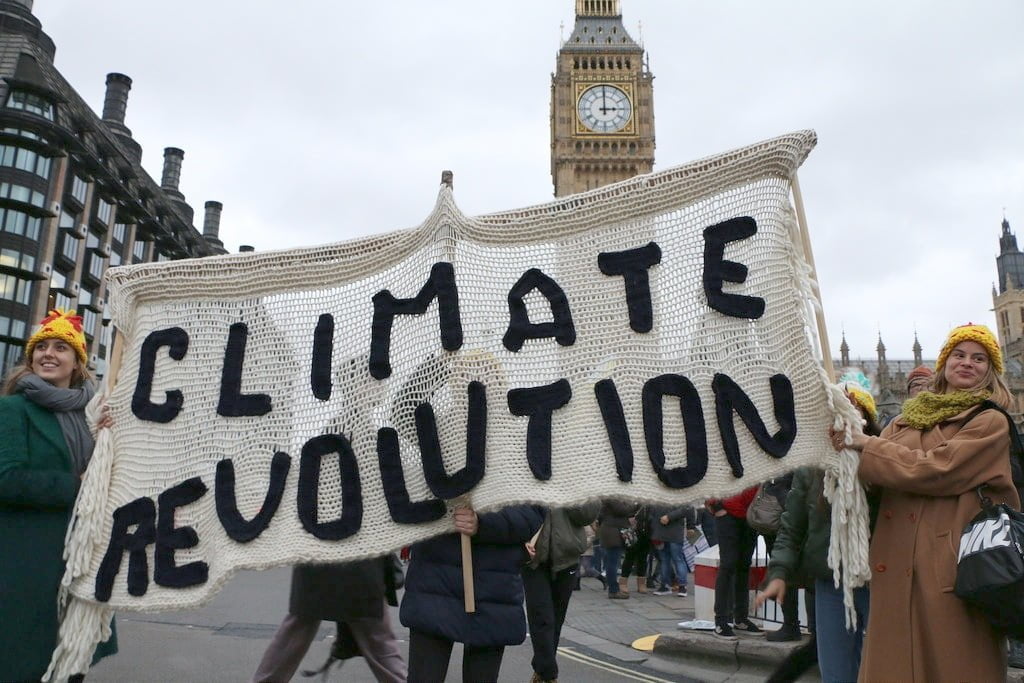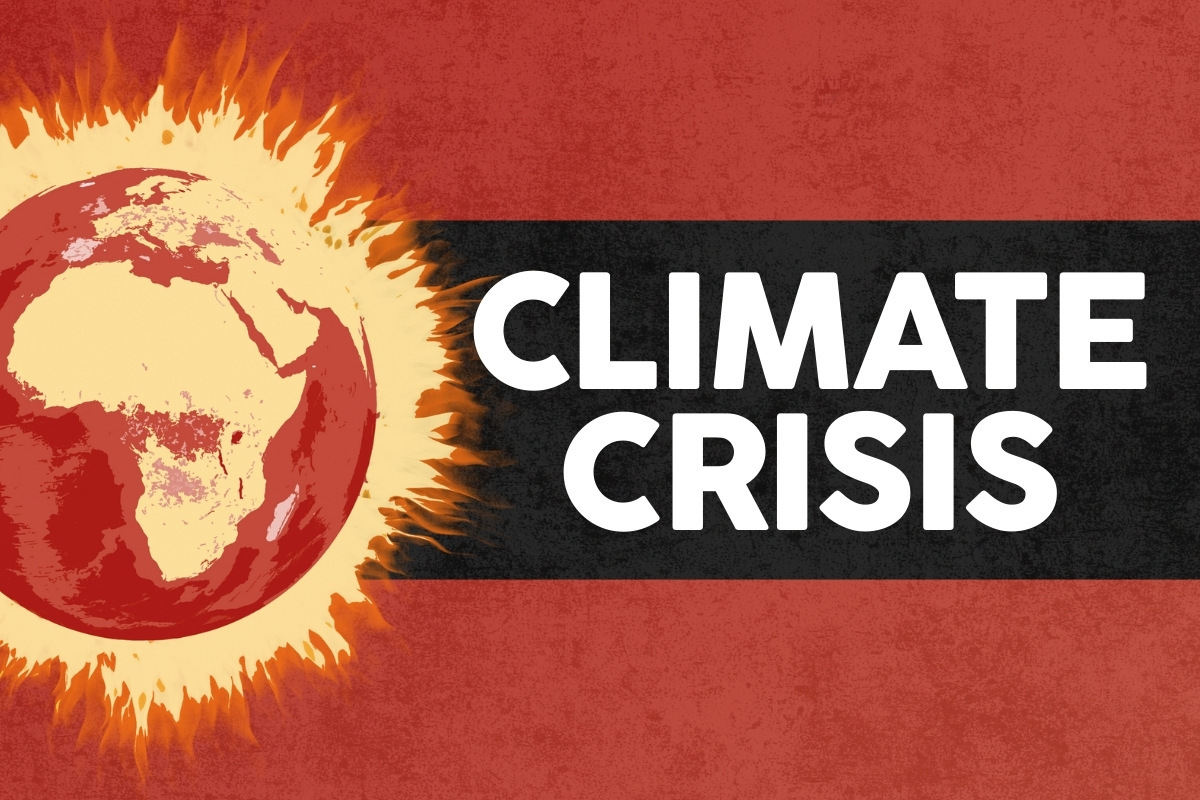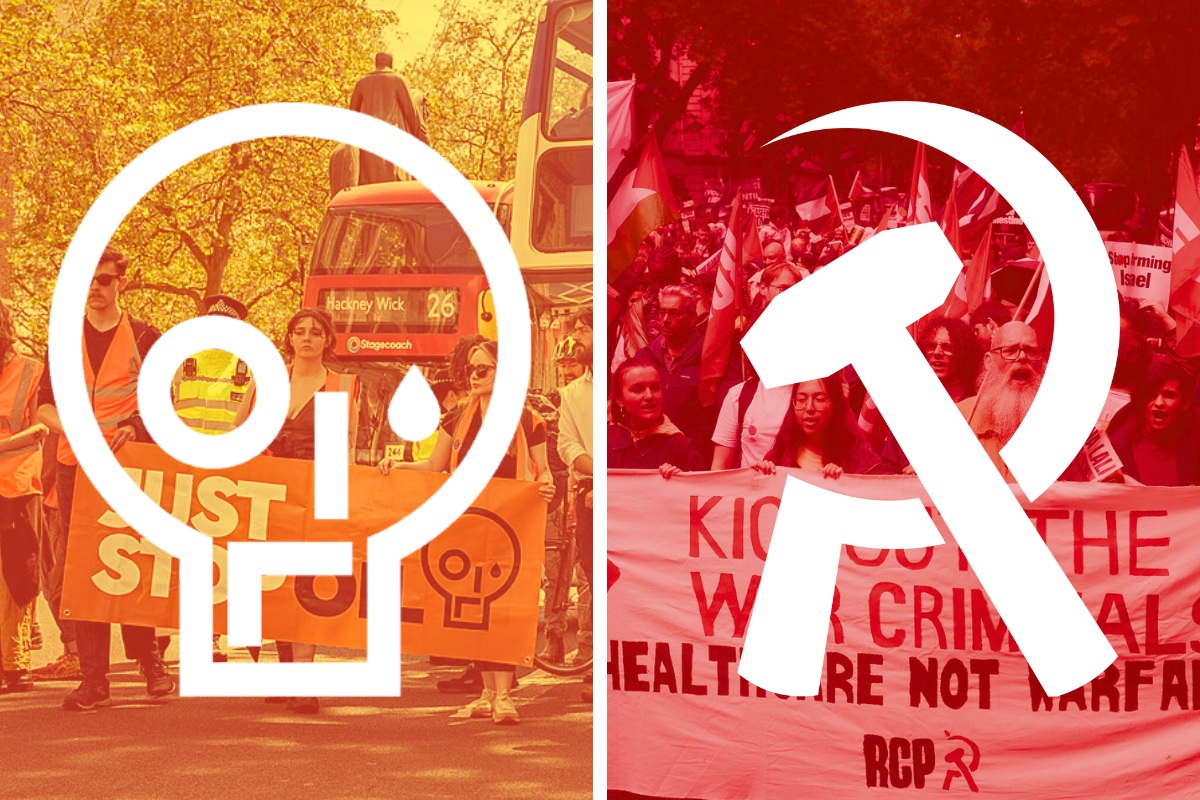The recent IPCC report has set alarm bells ringing about the urgency of combatting climate change. But the capitalists cannot – and will not – do anything to save the planet.
Earlier this month, the UN’s Intergovernmental Panel on Climate Change (IPCC) published a special report looking at the impact of global warming. The study, based an aggregate of data from over 6,000 published scientific papers, modelled the effects of temperature rises of 1.5°C and 2°C above pre-industrial levels,.
The headline conclusion was that 2°C of warming (a non-binding target established by the 2016 Paris Agreement) would still cause major and devastating shifts in regional climatic characteristics.
Droughts and heat-waves would be far more likely; ice sheets would irreversibly melt; whole ecosystems, such as coral reefs, would be under threat of extinction; and an additional several hundred million people would be exposed to dangerous climate-related risks.
In order to avoid the most catastrophic consequences of global warming, therefore, it is imperative that we as a society limit global temperature rise to 1.5°C. This would require large-scale emissions reductions, all in a relatively short space of time. The report suggests that a 45% reduction in greenhouse gas emissions is needed (relative to 2010) by the year 2030.
The IPCC argues that these more ambitious targets are both feasible and achievable. But it will require urgent and radical change.
Tell us something we don’t know
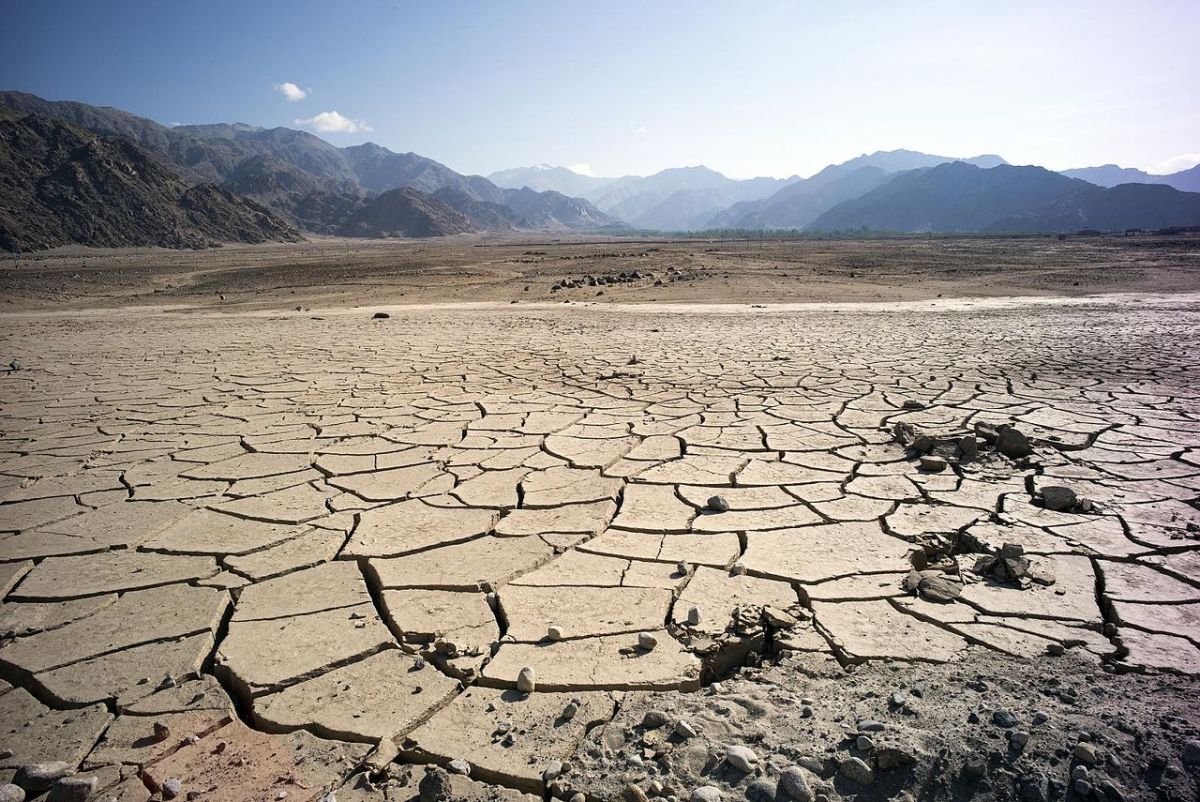 The past few years have seen international institutions such as the EU, the UN and the G7 give us plenty of back-slapping headlines about how much they’re trying to halt climate change.
The past few years have seen international institutions such as the EU, the UN and the G7 give us plenty of back-slapping headlines about how much they’re trying to halt climate change.
In reality though, they have shown themselves to be wholeheartedly unable to instigate the kind of radical changes to the economy that the IPCC report – and common sense – tells us we will need if we’re going to solve the environmental crisis.
The data that the IPCC cites is widely available and the report is based entirely on papers that have already been published. Whilst it is a comprehensive and useful summary, therefore, it actually tells us very little that we don’t already know.
This begs the question: if we already have this information, why haven’t the measures advocated by the report already been adopted? And why, for all the grandiose rhetoric, has nothing fundamentally been changed in the face of the most credible existential threat to our planet?
Capitalism’s insatiable hunger
 We must concretely understand the true nature of this crisis if we are to tackle it effectively.
We must concretely understand the true nature of this crisis if we are to tackle it effectively.
The environmental crisis is a symptom of the crisis of capitalism. The reason none of these international institutions or national governments are able to effectively deal with the climate crisis is because they are part-and-parcel of the broken, profit-driven system responsible – a system that they are completely committed to defending and upholding.
It is the contradictions at the heart of the capitalist system that are at the root of the environment devastation that we see around us.
Capitalism relies on the exploitation of natural resources, just as it does the exploitation of workers. And this parasitic relationship means that, as the crisis of capitalism deepens, we see the climate crisis deepening also. The desperate drive for new commodities to sell – and new markets to sell in – leads to an insatiable, ravenous, and destructive hunger on the part of the capitalists.
Anarchic system
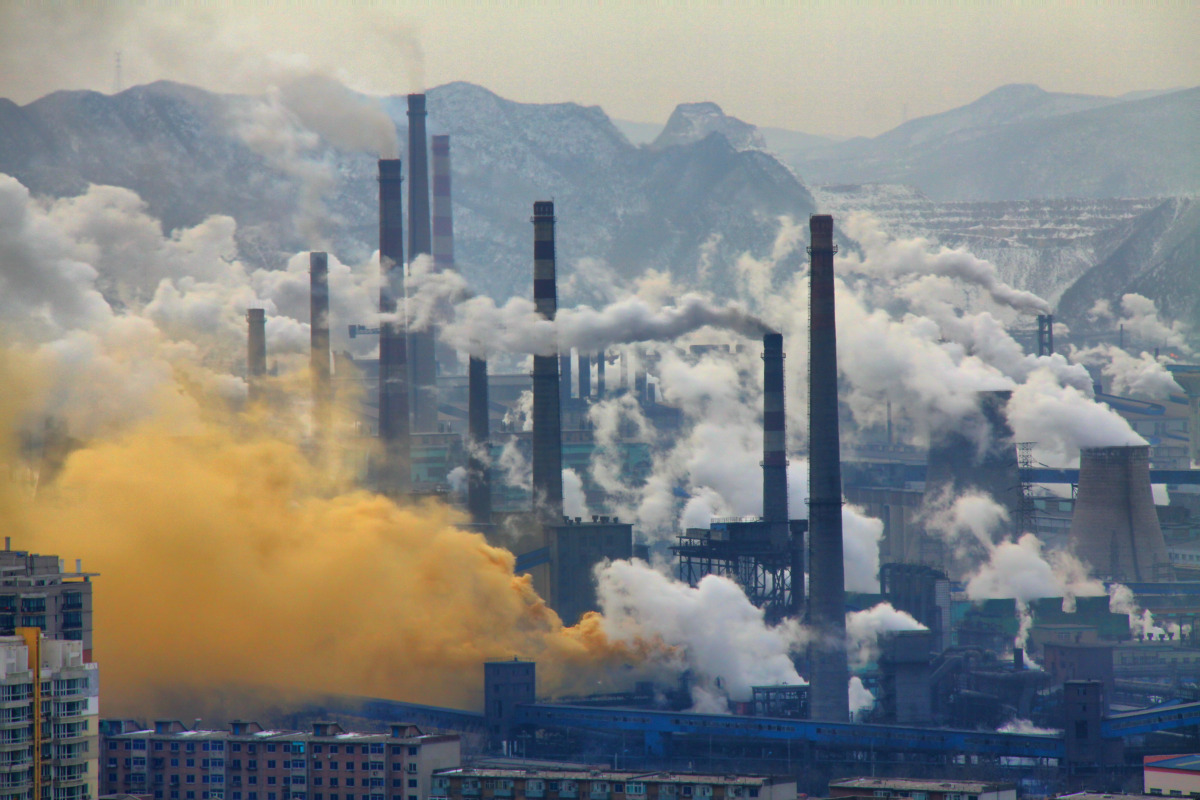 Trump’s tantrums over climate treaties and trade deals have highlighted the vulnerabilities of flimsy agreements between capitalist nation states. In any case, these agreements mean nothing anyway unless the profit motive – the economic incentive for environmental degradation – is tackled.
Trump’s tantrums over climate treaties and trade deals have highlighted the vulnerabilities of flimsy agreements between capitalist nation states. In any case, these agreements mean nothing anyway unless the profit motive – the economic incentive for environmental degradation – is tackled.
Middle-ground attempts to regulate the excesses of the system will not work either. This is demonstrated most clearly by the Volkswagen emissions scandal of recent years, where ‘defeat devices’ made cars appear to pass emissions tests when in practice they still broke regulations.
Attempts to try and cheat are built into the fabric of capitalist corporations, who will cut every corner possible in their pursuit of profits. There is clearly no capitalist government or state, even collectively, that is able or willing to genuinely regulate this anarchic profit-driven system.
Crises of overproduction; the irrational distribution of goods and production of commodities; uneven development; the excesses of the capitalist class; and the increasing concentration of wealth: all of these are contradictions inherent in the capitalist system. They will only be fixed by a socialist, democratically-planned economy.
Reactionary “solutions”
 It is necessary also to combat the pernicious and pervasive idea, promoted by the establishment, that it is ordinary people who are responsible for the environmental crisis.
It is necessary also to combat the pernicious and pervasive idea, promoted by the establishment, that it is ordinary people who are responsible for the environmental crisis.
The solutions that flow from this analysis are entirely reactionary: a Malthusian obsession with population growth, suggesting that there are “too many people” or “too many mouths to feed”; and an emphasis on personal lifestyle changes and cutting back on individual consumption, rather than on the systematic changes that are needed.
Such “solutions” are essentially just a greenwashing of austerity, telling workers and the poor that they must tighten their belts to solve a problem created by the capitalists and their rotten system.
The problem with capitalism is not the comforts of modern life that it has brought to people (albeit often only for a privileged minority). There are enough resources produced already for every person across the planet to live a comfortable and decent life. If these were distributed in a rational and equitable way, there would be enough for everyone, without any additional production or waste.
Meanwhile, the technologies already exist to produce far more, but without the environmental degradation and destruction associated with the capitalist system. The problem is that capitalism cannot profitably utilise these technologies.
Capitalism to blame
It should come as no surprise that the apologists of the capitalist system shun radical solutions in favour of shifting the responsibility onto individual consumers. After all, the ruling class has always tried to place the burden of capitalism’s ills onto the shoulders of the working class.
The mainstream press scream apocalyptic headlines about global catastrophe, followed by articles implying that we can save the planet if we recycle more, eat less meat, buy an electric car, plant flowers to save the bees, and buy ethically-made goods.
But this rhetoric is impotent. These headlines ask us what we can do, but conveniently ignore the crimes of the real environmental vandals and the systemic nature of the crisis.
Whilst we are encouraged to make “ethical” choices, studies show that just 100 massive companies have contributed 71% of all greenhouse gas emissions since the 1980s.
It is capitalist corporations such as ExxonMobil, Shell, Chevron, PetroChina and BP that are responsible for the degradation of our planet. Not you when you forget to switch off a light.
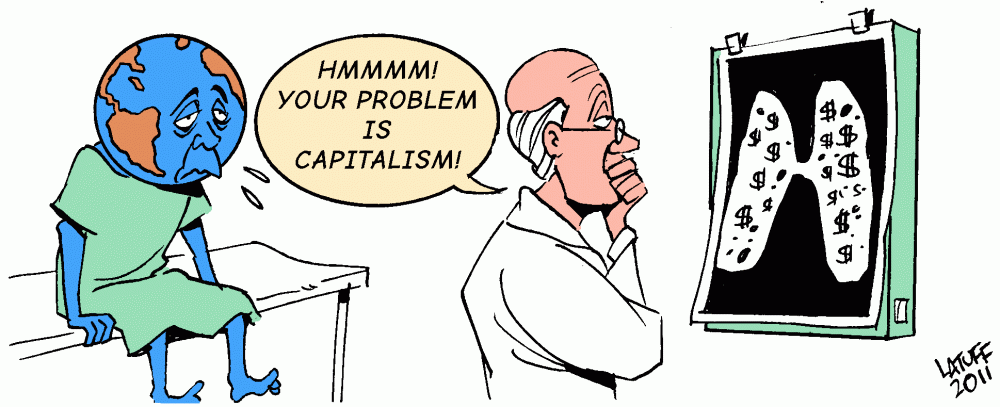
Revolutionary change
Speaking of the environment, Marx once said: “[we] are simply its possessors, beneficiaries and have to bequeath it in an improved state to succeeding generations.”
These words – which would be empty rhetoric coming from the mouths of capitalist governments or the establishment politicians – speak a fundamental truth about the alienation of humanity from nature under the capitalist system.
To redress the exploitation of the planet, to truly make a difference, we must expropriate the reckless big businesses and struggle for the socialist transformation of society. This is the kind of revolutionary change that is needed to combat climate change and environmental destruction. It is the only way to save our planet and humankind from collapse.

